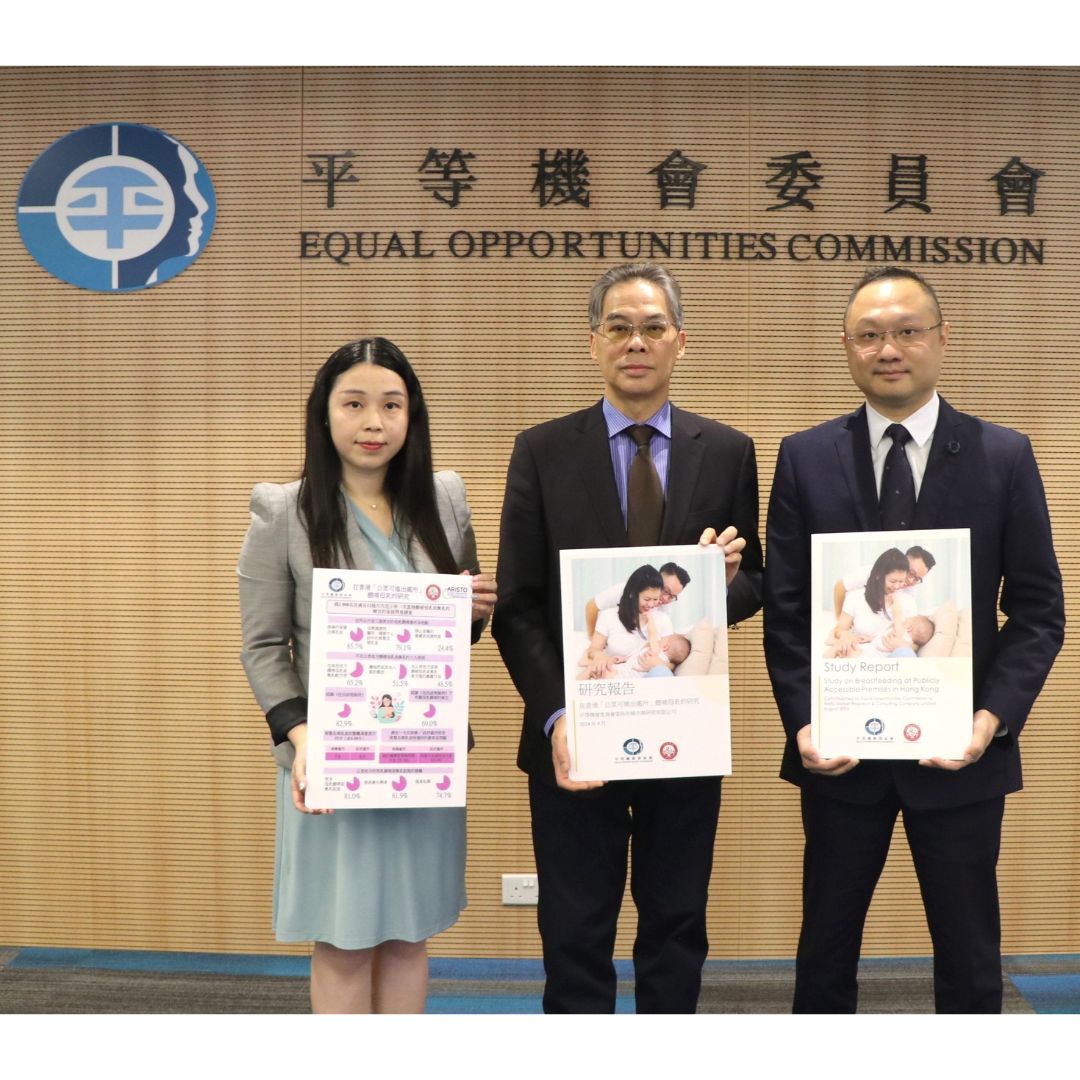
Over 80% of breastfeeding women want more breastfeeding facilities in public premises, EOC study finds
On 6 August, the EOC released the findings of the Study on Breastfeeding at Publicly Accessible Premises in Hong Kong. The study found that 81% of the surveyed women who had breastfed or expressed milk believed that more breastfeeding or milk expressing facilities are needed in public places. Some respondents reported issues with existing facilities, including inadequate availability, inconsistent quality, unsanitary conditions, and long waiting times.
The research team conducted access audit of 50 shopping malls and 50 government premises. They found that 10 malls and eight government premises lacked babycare and lactation rooms. Almost all of these establishments were established in 2000 or before. In addition, the babycare areas in 52.5% of the shopping centres and 38.1% of the government premises did not comply with the suggested size as stipulated in the Practice Note on “Provision of Babycare Rooms and Lactation Rooms in Commercial Buildings”. To address these issues, the Study recommends the Government to provide incentives for premises to establish breastfeeding facilities, while also calling on the private sector to allocate space for and improve the quality of such facilities.
EOC Chairperson Ms Linda LAM Mei-sau said, “Riding on the World Breastfeeding Week, which falls on the first week of August each year and carries the theme ‘Closing the Gap: Breastfeeding Support for All’ this year, the EOC hopes that the Study findings can raise awareness across different sectors on the state of breastfeeding facilities in Hong Kong. We are delighted that the Study has been accepted by the World Alliance for Breastfeeding Action as one of the activities echoing the World Breastfeeding Week 2024, which affirms the EOC’s efforts in promoting a breastfeeding-friendly environment. Through the World Breastfeeding Week, I hope that everyone can support breastfeeding mothers, whether in the workplace or in public places, with appropriate facilities, and give them more understanding and tolerance. This would allow them to feed their children in safe and comfortable environments without discrimination or harassment.”

